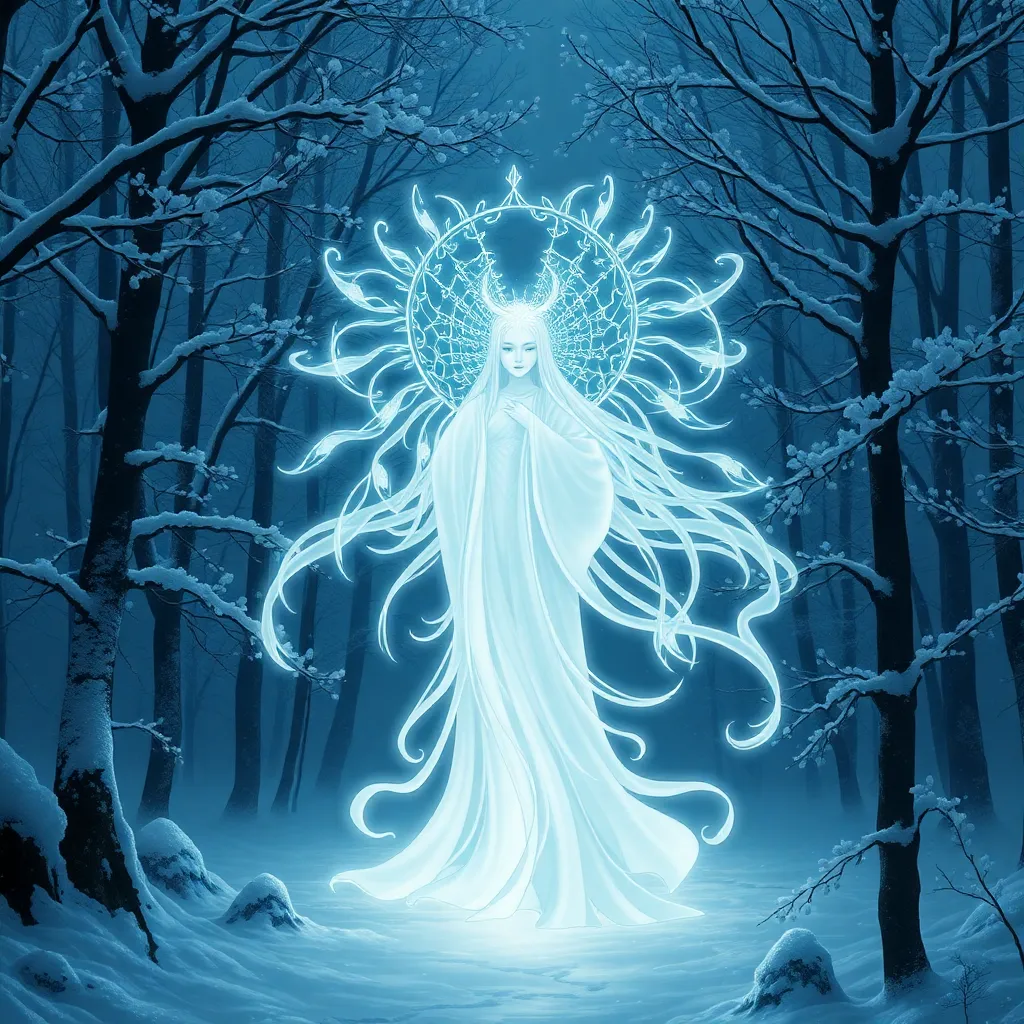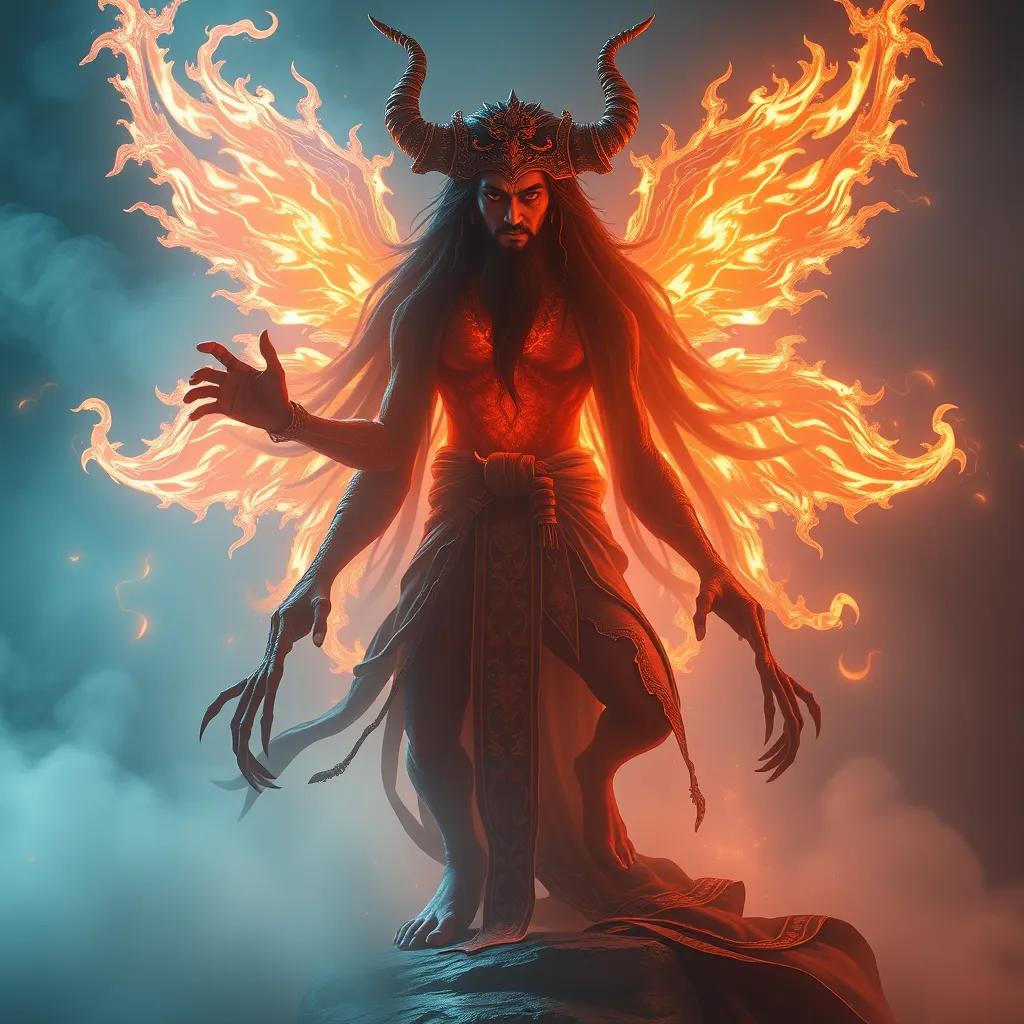The White Lady of Japanese Folklore: Unveiling the Myths and Legends of Yuki-onna
I. Introduction to Yuki-onna
Yuki-onna, often referred to as the Snow Woman, is a prominent figure in Japanese folklore, embodying the duality of beauty and danger. She is known for her ethereal appearance and chilling presence, captivating the imagination of many. As a spirit associated with snow and winter, Yuki-onna serves as a significant character in cultural narratives, reflecting deep-seated fears and desires that resonate in Japanese society.
II. Origins and Historical Context
A. The earliest mentions of Yuki-onna in literature and oral traditions
The origins of Yuki-onna can be traced back to ancient Japan, with her earliest mentions found in folklore and oral traditions. Tales of Yuki-onna have been recorded in various texts, including the “Konjaku Monogatari” (Tales of Times Now Past) from the late Heian period (794-1185). These early stories depict her as a beautiful woman who appears during snowstorms, often leading men to their demise.
B. Evolution of the Yuki-onna myth through different regions of Japan
As the myth of Yuki-onna spread throughout Japan, it evolved, taking on different characteristics depending on the region. In northern areas like Hokkaido, she is often portrayed as a vengeful spirit, while in more southern regions, she may be depicted as a more benevolent figure. This regional variation illustrates how local beliefs and environmental factors influence folklore.
III. Physical Characteristics and Symbolism
A. Description of Yuki-onna’s appearance and attire
Yuki-onna is typically described as a stunningly beautiful woman with long black hair and pale skin, embodying the purity of snow. Her attire often consists of a flowing white kimono that resembles the snowflakes surrounding her. This striking appearance not only makes her alluring but also symbolizes the chilling beauty of winter.
B. Symbolic meanings associated with her ethereal beauty and cold demeanor
The beauty of Yuki-onna symbolizes the transient nature of life and love, much like the fleeting beauty of snow. Her cold demeanor represents the harshness of winter, serving as a reminder of nature’s power and unpredictability. Yuki-onna embodies both allure and peril, reflecting the delicate balance between attraction and danger.
IV. Common Themes in Yuki-onna Legends
A. The dual nature of Yuki-onna: benevolent vs. malevolent
Yuki-onna’s character is often portrayed with a dual nature; she can be both benevolent and malevolent. In some tales, she protects lost travelers and offers them warmth, while in others, she lures men to their deaths with her beauty. This duality makes her a complex figure, embodying the contrasts found in human nature.
B. Themes of love, loss, and the supernatural in her stories
- Love: Many stories highlight Yuki-onna’s longing for love, often leading her to form tragic relationships with mortals.
- Loss: Her narratives frequently explore themes of loss, emphasizing the sorrow of unfulfilled desires.
- Supernatural: Yuki-onna’s supernatural abilities, such as freezing her victims or controlling snowstorms, underscore her otherworldly nature.
V. Yuki-onna in Modern Culture
A. Representation of Yuki-onna in literature, film, and art
In contemporary culture, Yuki-onna continues to inspire various forms of artistic expression. She appears in literature, films, and visual arts, often reinterpreted to resonate with modern audiences. Notable representations include her roles in anime and manga, where she is depicted as both a tragic figure and a powerful spirit.
B. Influence on contemporary understandings of Japanese folklore
Yuki-onna has become a gateway for many to explore Japanese folklore. Her stories often serve as a lens through which cultural values and historical contexts can be examined, fostering a greater appreciation for Japan’s rich mythological heritage.
VI. Comparisons with Other Folklore Figures
A. Similarities with other mythical women in global folklore (e.g., La Llorona, banshees)
Yuki-onna shares similarities with other mythical women in global folklore, such as La Llorona from Latin American culture and banshees from Irish mythology. All three figures represent themes of sorrow, loss, and the supernatural, often embodying the consequences of unfulfilled love or tragic circumstances.
B. Unique aspects of Yuki-onna that distinguish her from her counterparts
Despite these similarities, Yuki-onna is unique in her connection to the natural world, particularly winter and snow. Her ethereal beauty and the duality of her character set her apart, making her a distinctive figure in folklore.
VII. The Psychological and Social Impact of Yuki-onna
A. Analysis of how Yuki-onna reflects societal fears and desires
Yuki-onna serves as a reflection of societal fears and desires, particularly regarding love and mortality. Her stories often delve into the complexities of human relationships, revealing the tension between attraction and danger. As a spirit associated with death, she embodies the fear of loss, making her a poignant symbol in Japanese culture.
B. Role of Yuki-onna in discussions about gender and power dynamics
Yuki-onna also plays a significant role in discussions about gender and power dynamics. Her character challenges traditional gender roles, as she possesses both beauty and lethal power. This duality invites discussions on the perception of women in society and the complexities of female identity.
VIII. Conclusion: The Enduring Legacy of Yuki-onna
A. Reflection on the cultural significance of Yuki-onna today
Today, Yuki-onna remains a vital part of Japanese cultural identity. Her stories continue to resonate, reflecting the enduring fascination with folklore and the human experience. As a symbol of beauty, danger, and the supernatural, she invites audiences to explore deeper meanings within her narratives.
B. The continuing fascination with Yuki-onna in both Japan and beyond
The allure of Yuki-onna transcends borders, captivating audiences worldwide. Her presence in modern media and art ensures that her legacy endures, inviting new generations to engage with the myths and legends that shape our understanding of the world.



